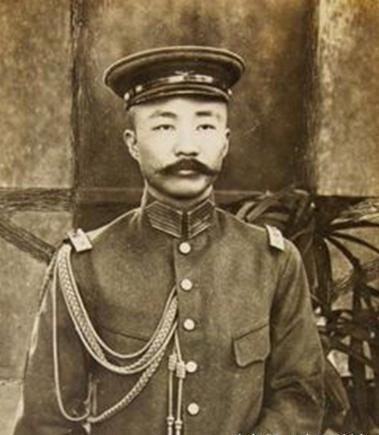Chen Jiongming, a native of Baicheng Village, Lian'an Town, Haifeng County, Shanwei City, Guangdong Province, was the governor of Guangdong Province and the commander-in-chief of the Guangdong Army. He died in Hong Kong on September 22, 1933, and was buried on April 3, 1935, at his request, ziwei mountain on the west lake of Huizhou, Guangdong.

In 1917, Li Yuanhong, the president of the Beijing government, awarded Chen Jiongming the title of "General Dingwei". Later, he expressed his wholehearted support to Sun Yat-sen, participated in the Dharma Protection Movement, served as the commander-in-chief of the Fujian-Guangdong Army, occupied Tingzhou, Zhangzhou, Longyan and other places in southwest Fujian, and established a base area, known as the "Southern Fujian Protector Zone".
In August 1920, Chen Jiongming defeated the Gui warlords who were entrenched in Guangdong and was appointed governor of Guangdong Province and commander-in-chief of the Guangdong Army.
After the prohibition of gambling came into effect on December 1, 1920, there was almost no gambling in Guangzhou. To this end, the Guangzhou academic community initiated the casting of a bronze statue of Chen Jiongming to commemorate the success of the ban on gambling. In 1921, the bridge was built in Guangzhou, named the Chen Gong Forbidden Gambling Memorial Bridge, and the forbidden gambling was engraved on the stone pillar next to the bridge.
In May 1921, sun yat-sen appointed him as the chief of the War Department and the chief of the Ministry of Internal Affairs of the Republic of China government, and actively participated in the "United Provinces Autonomy" movement. Later, he obstructed Sun Yat-sen from setting up a base camp for the Northern Expedition in Guilin and sabotaged the Northern Expedition.
In April 1922, Chen Jiongming was dismissed by Sun Yat-sen from the posts of governor of Guangdong Province, commander-in-chief of the Guangdong Army, and chief of the Ministry of Internal Affairs. Retreating to Huizhou, his subordinate Ye Ju led the main force of the "Chen Family Army" back to Guangdong, and on June 16 launched a mutiny, shelling the Presidential Palace and Yuexiu Building. On August 15, Chen Jiongming returned to Guangzhou as commander-in-chief of the Cantonese Army.
In 1925, when Sun Yat-sen died, Chen Jiongming wrote a pair of elegies: "Only heroes can kill people alive, and the merits and crimes are right and wrong, and there are thousands of young histories; He fought again and again with his former friends, and his public hatred and private friendship all depended on an inch of pure heart. ”
In 1925, after the revolutionary army completely destroyed Chen Jiongming's forces in two crusades, he took refuge in Hong Kong and later reorganized the American Zhi Gong Party into the Chinese Zhi Gong Party. Chen Jiongming was elected as premier and Tang Jiyao as vice premier.
In 1933, Chen Jiongming died in poverty, and he had to use the coffin prepared by his mother. It is very rare for a once prominent local military and political governor to have such a tragic ending.
Chen Jiongming's tomb is located on Ziwei Mountain in Huizhou, Guangdong Province, the mausoleum is a pavilion building of the Republic of China period, the tombstone is about 3 meters high, overlooking the West Lake. The inscription is handwritten by the master of traditional Chinese studies, Zhang Taiyan. Its cemetery has not been damaged despite the wind and rain.
In 1990, Chen Jiongming's tomb was listed as a municipal cultural relics protection unit by the Huizhou Municipal Government.
Out of respect for history, Huizhou City invested 21 million yuan in April 2012 to renovate Chen Jiongming Cemetery. The cemetery covers an area of about 7,754 square meters, in addition to the restoration of Chen Jiongming's tomb and tombstone pavilion, the tomb square and the cemetery exhibition room, management room, sculpture table, etc. have also been restored.
Source: Rural Social Brother